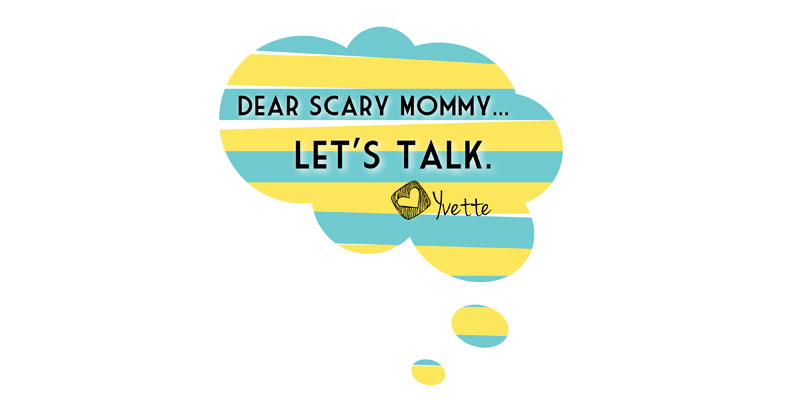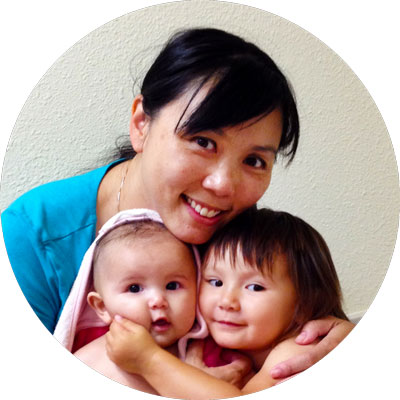
No Scary Mommy, Developmental Milestones are NOT Bullshit.
NOTE: This open letter is written in response to a blog originally published on Scary Mommy by Alessandra Macaluso in August. Because it still exists, it’s just asking to be rebutted. As founder of Playful Bee, I am passionate about helping parents nurture their babies’ learning and development from birth, which includes educating them on the importance of developmental milestones and how to use them to observe their child’s growth over time. So here goes, from one mommy to another.
Dear Scary Mommy,
Are developmental milestones really hogwash?? Should we really say “forget you!” to them? The parents to over 9-million developmentally disabled children1,2 probably don’t think so. Hmm…why could that be, I wonder?? Because developmental milestones helped diagnose their children’s disabilities and opened the doors for early intervention and treatment. Period. It’s time to see the bigger picture mommy friends. It’s time to see the bigger picture mom friends, so let’s dig in.
Today, I casually came across your very emphatic blog article, titled “Why Developmental Milestones are Bullshit.” Now on most days, I appreciate your blog’s no-nonsense and often humorous point of view on parenting young children. But today, I found myself in disbelief that Scary Mommy would publish these words given the potential harm it could do to the lives of all children whose parents may blindly follow it.
In your article, you imply that developmental milestones are arbitrary and that one can just make up their own developmental milestones, like “perfect[ing] the hands-free face-plant into a cake” skill that Penelope so aptly displayed on her birthday. But this is simply not true. Developmental milestones are NOT arbitrary or useless checklists designed to drive parents crazy. And here’s why developmental milestones are important:
Each Brushstroke and Color Help You See the Bigger Picture
Developmental milestones are age-specific skills and functional abilities that babies and young children master as they grow and develop. Pediatricians, early educators, and other care providers use developmental milestones as a guide to help them evaluate children’s growth and development in continuum. This is an important point: developmental milestones are meant to be used to track a child’s developmental progress in whole and not in singular parts.
Like you, I wholeheartedly agree that hyper-focusing on our child’s mastery (or lack thereof) of a single skill in a single point of time is not necessary or recommended. However, as parents we should aim to (1) understand what to observe in our children’s development, (2) understand how to observe their development, and (3) know when to consult our physicians and care providers if we have any concerns. Ever had that nagging feeling that something was off? Or maybe just curious as to why your child may not be developing the same skills as her play buddies? Don’t worry about the “what if’s” and “maybe’s,” just ask your care team and get a conversation going.
Every Child Marches to Her Own Drum
It’s true that while every developmental milestone has a “normal” range during which most children develop specific skills, individual children often achieve various abilities at different rates and times. So yes, it’s AWESOME that Penelope learned how to roll from her back to front while her other baby friends achieved the same milestone in a different manner and time. But did you know that tracking your child’s developmental milestones can help you better tailor your child’s learning activities and experiences to her specific needs? This is the basis of real authentic personalized learning – no algorithms, no black box tech, no spin – just you observing your child’s progress over time and adapting her learning experiences along the way. This is why we LOVE child-centered learning!
Is it a pain to keep track of your child’s developmental milestones? Don’t like those old-school paper lists given to you by your pediatrician? Not a problem, sign up for Playful Bee, and you can learn about a new milestone every week and easily track them over time for your child from the ages of 0-5 years old. As parents, we really can help our kids learn by leaps and bounds if we adequately support their unique approaches to learning, strengths and weaknesses, and pursuit of personal interests.
Don’t Rely on a False Sense of Security
When you state that “no new mom should [look up developmental milestones]” because it’s “the equivalent of WebMD’ing yourself when you have a headache,” it implies that children are good as long as parents “see” progress and pediatricians are “happy” with their development as validated during their routine well-child visits. But did you know that 1 in 6 U.S. children possess a developmental disability, many of whom are not likely diagnosed until they are well into school age? Why is this happening when we know that early diagnosis and treatment is key to helping our children achieve to their fullest potential?
First off, while your pediatrician is a good first go-to resource for your child’s wellness and health care needs, you may want to rethink relying 100% on your child’s well visits. According to an Academy of American Pediatric’s study, 33.6% of parents reported to spending less than 10 minutes with their doctors. The study concluded that “[m]any well-child visits are of short duration, and shorter visits are associated with reductions in content and quality of care.”
First Signs, a non-profit organization dedicated to the public education of early warning signs of autism and related disorders, further supports that “too few physicians refer young children to early intervention” because physicians may not:
- Know what critical signs to look for during each stage.
- Be familiar with early intervention.
- Have enough time for well visits due to managed healthcare pressures.
- Believe that early intervention can help a child’s outcome.
- Want to alarm parents unnecessarily in case the child is able to overcome the developmental delay.
Be careful! Don’t approach your child’s wellness and health care with a false sense of security. In the end, parents are active participants and stewards in their child’s young lives. And remember, in the event that your physician dismisses your questions or concerns, parents have the right to get a second or even third opinion from other doctors and specialists. So go ahead and advocate for your child, if you feel the need!
(Hyper)Parenting Gone Wrong
In all honesty, much of your wrath should be more directed towards the pervasive hyperparenting, micro-reporting, and over-analysis of our babies’ every sneeze, poop, and shut eye. The current “quantified me” trend definitely has the toxic ability to make parenting a maddening experience if we let it. I personally remember losing a lot of sleep (ironically) counting every minute of my newborn’s sleep on BabyConnect. Now with more perspective as a two-time momma, I understand that it’s not about being in the weeds of every single minute of sleep my baby has, but about understanding the broad strokes of why high-quality sleep is important to my child’s development and how I can try to support restful, uninterrupted sleep as often as possible.
I am with you. Really, I am. I’m all in on calling bullshit on this type of hyper parenting! I’m behind you in advising newbie parents not to get caught up in passive-aggressively bragging about their children’s every accomplishment or milestone. But please, pretty please, pretty please with a cherry on top: let’s stop demonizing our helpful little developmental milestones along the way. Developmental milestones are our friends!
At the end of the day, eating cake without abandon is not mutually exclusive from getting educated on how your baby should be developing and growing. Knowledge will give you confidence to most effectively act and advocate on your child’s behalf should anything ever appear off. So yes, let our babies eat cake, but also be watched over by us in case they ever start to choke and need help.
Happy Learning,
Yvette Hwee, Mommy to Gemma (3 years) and Foxin (1 Year)
1National Center on Birth Defects and Developmental Disabilities, Centers for Disease Control and Prevention. Developmental Disabilities. Retrieved August 27, 2015, from http://www.cdc.gov/ncbddd/lities/about.html#ref.
2American Fact Finder, Annual Estimates of the Resident Population by Single Year of Age and Sex for the United States: April 1, 2010 to July 1, 2011. U.S. Census Bureau. Retrieved August 27, 2015, from http://factfinder.census.gov/faces/tableservices/jsf/pages/productview.xhtml?fpt=table.
Yvette Hwee
Latest posts by Yvette Hwee (see all)
- Physical Play Keeps Tantrums Away - June 7, 2017
- Finding the Secret Sauce to Your Baby’s Tummy Time - October 17, 2016
- Hundreds Chart: Teach Your Preschooler To Count to 100 Today! - September 2, 2016


+ There are no comments
Add yours